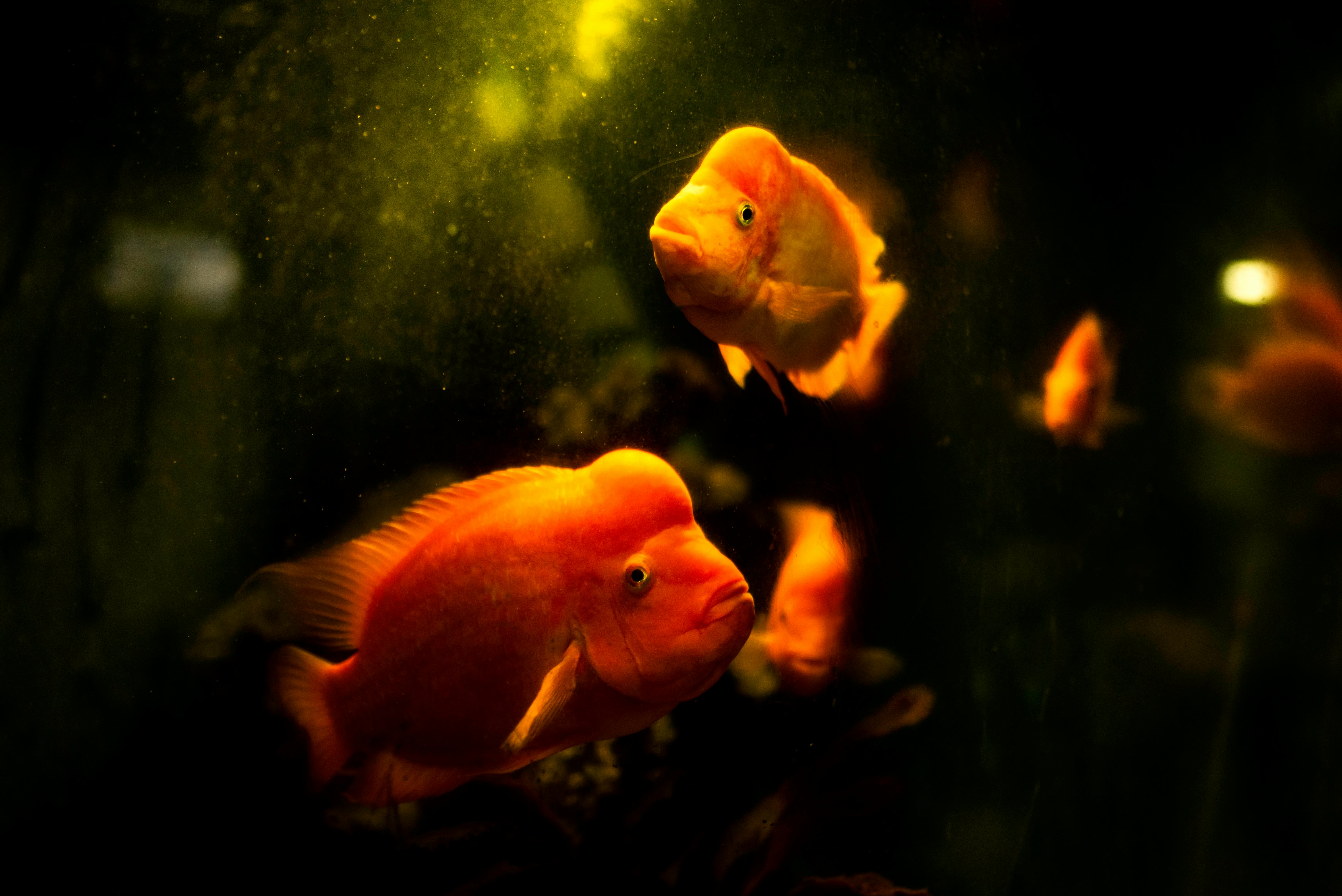
Best 7 Freshwater Aquarium Fish to Consider in 2025 for Beginners
Setting up a freshwater aquarium can be an exciting venture for beginners and seasoned aquarists alike. The right fish can create a vibrant aquatic ecosystem, providing both visual appeal and educational opportunities for families. As we look ahead to 2025, it's crucial to choose hardy, easy-to-care-for species that thrive in varied conditions and are compatible with one another. In this guide, we’ll explore the best freshwater aquarium fish for beginners, highlighting colorful, peaceful varieties that will enhance any tank setup.
When selecting fish for your aquarium, consider factors such as size, temperament, and compatibility. These qualities play critical roles in establishing a healthy community tank. This article will provide recommendations based on these aspects while also including essential tips on tank maintenance, feeding schedules, and species-specific care. You'll come away from this article with knowledge that sets you up for success in your aquarium journey.
Here’s a quick overview of what you can expect from this guide: we'll cover seven top freshwater fish species that are optimal for beginners, provide tips on freshwater fish care, and offer insights into maintaining a beautiful aquarium environment.
Essential Characteristics of Beginner-Friendly Fish Species
Understanding the unique characteristics of freshwater fish is vital for novice aquarists. Beginners should look for fish that are not only visually appealing but also resilient and easy to care for. Hardy freshwater fish have demonstrated adaptability to fluctuating water conditions and can survive in various environments, making them perfect for community aquariums.
Hardy Freshwater Fish
Hardy freshwater fish are resilient and can withstand changes in their environment, making them ideal candidates for beginner aquariums. They are typically less sensitive to water quality and temperature fluctuations. Some examples include the platy, zebra danio, and goldfish. These species are known for their robustness and are generally easy to breed, providing an exciting aspect for beginners interested in aquatic life.
Peaceful Species for Community Tanks
Choosing peaceful fish breeds is essential for beginners looking to establish a community tank. This helps prevent aggression and stress among fish. Popular choices such as the neon tetra, guppy, and corydoras catfish coexist harmoniously with most freshwater species. Their social nature also promotes interaction and adds liveliness to the tank.
Colorful Species for Visual Appeal
Colorful freshwater fish amplify the beauty of your aquarium, providing a visual feast. Fishes like the betta, gourami, and various tetras are stunning and can bring vibrancy to your tank. Their attractive colors and distinctive patterns are appealing, and observing their behavior can be entertaining for the whole family.
Top 7 Freshwater Fish Species for New Aquarists
Now that we understand the characteristics to look for, here are the top seven freshwater fish that beginners should consider in their aquariums:
1. Betta Fish
The betta fish, known for its splendid colors and flowing fins, is a popular species among new aquarists. Betta fish thrive in smaller aquariums and prefer warm, shallow waters. However, they are territorial and should not be housed with other males or aggressive species. Creating a peaceful environment with plenty of cover can help mitigate stress.
2. Neon Tetra
Another vibrant species, the neon tetra, is perfect for community tanks. These schooling fish thrive in groups of six or more and are known for their striking blue and red coloration. Neon tetras require well-planted tanks and appreciate slightly acidic water conditions, making them a joy to observe as they dart around the aquarium.
3. Guppy
Guppies are ideal for beginners because of their adaptability and vibrant colors. They come in various patterns and can reproduce readily, offering a chance to learn about the breeding process. Guppies thrive in community tanks and are generally non-aggressive, making them compatible with many other peaceful species.
4. Platies
Platies are another hardy fish that come in numerous colors and patterns. They are friendly, easy to care for, and adapt well to different water conditions. These fish thrive in groups, and their social nature makes them a delightful addition to any aquarium.
5. Zebra Danio
Known for their hardiness, zebra danios are perfect for beginners. They can tolerate a wide range of water temperatures and are very active swimmers, bringing dynamism to your aquarium. Their striking stripes and sociable behavior make them a favorite among new aquarists. They also assist in cycling the tank due to their strong health and resilience.
6. Corydoras Catfish
Corydoras catfish are bottom dwellers that help keep the tank clean by scavenging for leftover food. These fish are peaceful and thrive in groups. Corydoras are great for community tanks and help create a balance within the aquarium ecosystem.
7. Gourami
Gouramis are peaceful and colorful fish that can thrive in smaller and larger tanks alike. They enjoy calm water and prefer being surrounded by floating plants. Their unique personality and gentle demeanor make them an excellent choice for beginner aquarists.

Creating the Perfect Freshwater Aquarium Setup
Having the right setup is vital for ensuring the health and happiness of your chosen fish. Essential elements include appropriate tank size, filtration, lighting, and regular maintenance. Let's dive deeper into these aspects to help you create an optimal aquarium environment.
Tank Size and Layout Considerations
Selecting the right tank size is crucial for your fish's well-being. Most beginner fish do well in a minimum of 10 to 20 gallons. This provides ample swimming space and helps maintain stable water conditions. When setting up your aquarium, consider including plants, rocks, and decorations to create hiding spots and reduce stress for your fish.
Filtration and Water Quality Maintenance
A strong filtration system is essential for maintaining water quality and clarity. Choose a filter that suits your tank size and be sure to regularly check and clean it. Regular water changes and testing for pH, ammonia, and nitrate levels will help ensure a healthy environment for your fish.
Heating and Lighting Requirements
Most tropical freshwater fish require a stable temperature between 75°F to 80°F. Using an aquarium heater will help maintain these ideal temperatures. Additionally, providing the right lighting is crucial for plant growth and fish health. Aim for 10-12 hours of light daily, ensuring that plants thrive and enhance the beauty of your aquarium.

Essential Freshwater Fish Care Tips
Successful fish keeping goes beyond initial setup—it requires ongoing care and attention. Here are some critical care tips to keep your freshwater fish healthy and thriving.
Feeding and Nutrition
Providing a well-balanced diet is essential for the health of your fish. Most beginners can start with high-quality flakes or pellets. Supplementing their diet with frozen or live food occasionally can promote vibrant colors and robust health. Research the dietary needs of your species to ensure they’re getting proper nutrition.
Monitoring Fish Health
Keep an eye on your fish for signs of health issues such as unusual swimming patterns or loss of appetite. Regular water testing can help prevent diseases caused by poor water quality. If you notice any abnormalities, it's vital to act promptly to maintain the health of your fish.
Breeding Opportunities
Breeding can be a rewarding experience. Many of the species mentioned, like guppies and platies, are easy to breed in home aquariums. If you decide to breed your fish, provide appropriate space and cover for the young fry to ensure their survival.
Common Freshwater Fish Compatibility Issues
Understanding how different species interact is essential for maintaining harmony in your aquarium. Some fish are more aggressive than others or may have specific requirements surrounding tank mates.
Choosing Compatible Species
When creating a community tank, always research compatibility. Species such as guppies and neon tetras are known to get along well. Conversely, pairing aggressive fish like bettas with smaller species may lead to issues. Utilize a compatibility chart to assist in selecting the right combinations for your tank.
Identifying Aggression Levels
Monitoring fish behavior is crucial for successful community tanks. Observing territorial disputes or bullying can indicate compatibility issues. If aggression occurs, remove the offending fish to prevent stress and injury to other tank members.
Resolving Compatibility Challenges
If you experience compatibility issues, consider rewriting the community layout. Providing additional hiding spots and rearranging decorations can help diminish aggression among fish. In cases of severe aggression, separate the affected species to maintain a peaceful environment.
Q&A Section on Freshwater Fish for Beginners
1. What are the best freshwater fish for new aquarists?
Some of the best freshwater fish for beginners include guppies, platies, neon tetras, and zebra danios. These species are hardy, colorful, and relatively easy to care for.
2. How often should I change the water in my aquarium?
It's advisable to change 10-15% of your aquarium water weekly. Regularly testing water quality will help guide you on necessary changes.
3. Can I keep different species of fish together?
Yes, but it's important to ensure the species are compatible. Always research the temperaments and requirements of potential tank mates.
4. What kind of food should I provide for my freshwater fish?
High-quality flakes or pellets are suitable for most species. Supplementing their diet with frozen or live foods can boost their health.
5. How can I prevent diseases in my fish?
Maintaining ideal water conditions and ensuring a balanced diet are key. Additionally, quarantining new fish before introducing them to your main tank can help prevent disease transmission.
In summary, setting up a freshwater aquarium is a fulfilling hobby. By selecting the right fish and following proper care guidelines, you can create a beautiful and thriving aquatic environment. Remember to do your research, monitor your fish regularly, and enjoy the fascinating world of freshwater aquariums.